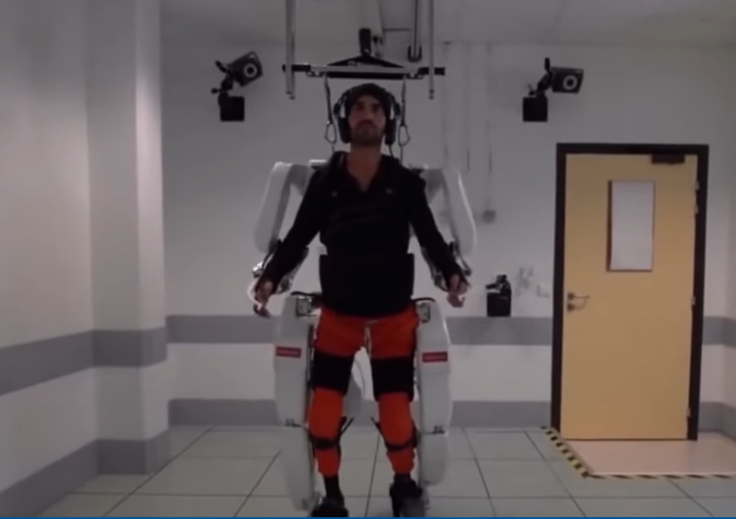
It may sound like a sci-fi story but new robotic suits may help people with spinal cord injury. A few days ago, in France this technology helped a 30-year-old man, who is paralyzed from the shoulders down, to walk again using an exoskeleton controlled by his brain.
The man, identified only as Thibault, said walking in the suit was like being the "first man on the moon," reported BBC. He tested the suit inside a controlled environment at Clinatec and the University of Grenoble in France.
As per the researchers even though his movements were far from perfect, it can be believed that the mind-controlled suit could one day become very useful to improve the patient's quality of life.
The suit is controlled by two implants that were surgically placed in Thibault's brain that can transmit signals into movements, which are then executed by a robotic exoskeleton, French researchers reported.
The man was paralyzed four years ago when he fell nearly 50 feet and was using a video game avatar to help it understand his thoughts for the past two years. Thibault who used to be an optician, suffered the spinal cord injury that had put him in the hospital for two years.
It took a lot of time for Thibault to learn how to control the arms, as it is a combination of multiple muscles and movements.
As per the French scientist, they will continue to develop this technology as currently it is limited by the amount of data that it can read from the human brain and send the message to the computer and then back to the exoskeleton.
The researchers are looking forward to developing finger control, which would allow the patients to use their fingers to pick up and move objects.
But there are other experts who pointed out issues related to this technology. Professor Tom Shakespeare, from the London School of Hygiene and Tropical Medicine, said, "A danger of hype always exists in this field. Cost constraints mean that hi-tech options are never going to be available to most people in the world with spinal cord injury."
In this era, we can't deny the power of technology and its use in the health industry to make life much easier. Recently software giant Microsoft and another company SilverCloud Health, have announced that they are working on cutting-edge machine learning and AI technologies to "accelerate the understanding and delivery of personalised mental healthcare that responds to each patient's unique situation," including early interventions to optimise clinical outcomes.









